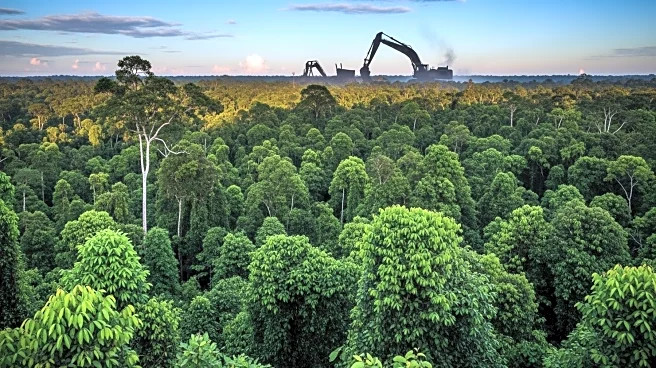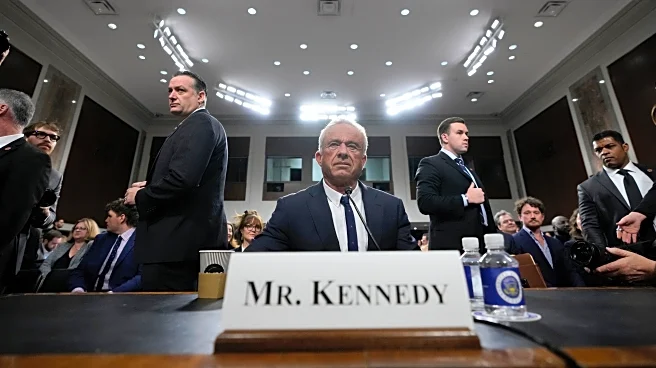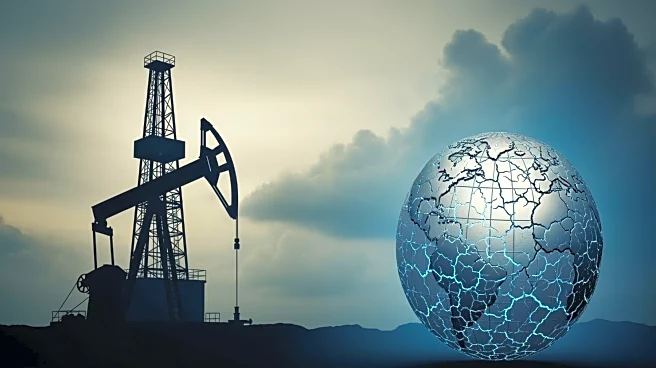What's Happening?
A report by Survival International, a London-based Indigenous rights organization, has identified significant threats to uncontacted Indigenous groups across the globe, particularly in South America and
Southeast Asia. The report estimates that nearly 65% of these groups face threats from logging, 40% from mining, and 20% from agribusiness. The uncontacted Hongana Manyawa on Indonesia's Halmahera Island are specifically threatened by nickel mining for electric vehicle batteries. These Indigenous communities, which deliberately avoid contact due to historical violence and disease, are at risk of being wiped out within a decade if protective measures are not implemented. The report calls for stronger legal recognition of Indigenous territories and a global no-contact policy to safeguard these communities.
Why It's Important?
The survival of uncontacted Indigenous peoples is crucial not only for their own rights but also for global environmental stability. These communities play a vital role in preserving biodiversity and stabilizing the climate by maintaining their forested territories. The threats posed by mining and logging not only endanger their existence but also contribute to deforestation and environmental degradation. The report emphasizes the need for governments and corporations to enforce Indigenous land protections and ensure supply chains do not exploit these areas. Public awareness and pressure are deemed essential in driving policy changes to protect these vulnerable groups.
What's Next?
The report urges immediate action from governments to legally recognize and enforce Indigenous territories as off-limits to extractive industries. It also calls for corporations to trace their supply chains to prevent sourcing from Indigenous lands. Advocacy groups are expected to increase pressure on governments and businesses to adopt these measures. The international community may see increased dialogue on the importance of Indigenous rights in the context of climate change and environmental conservation. The report highlights the need for a shift in perception, viewing uncontacted peoples as integral to global ecological health rather than obstacles to development.
Beyond the Headlines
The ethical implications of contact with uncontacted Indigenous peoples are profound, as such interactions can lead to disease transmission and cultural disruption. International law requires free, prior, and informed consent for activities on Indigenous lands, but obtaining consent from uncontacted groups is inherently challenging. The report advocates for a 'no contact, no-go zones' policy to prevent harmful interactions. This approach underscores the need for a paradigm shift in how societies view and interact with Indigenous communities, recognizing their autonomy and contributions to global sustainability.










